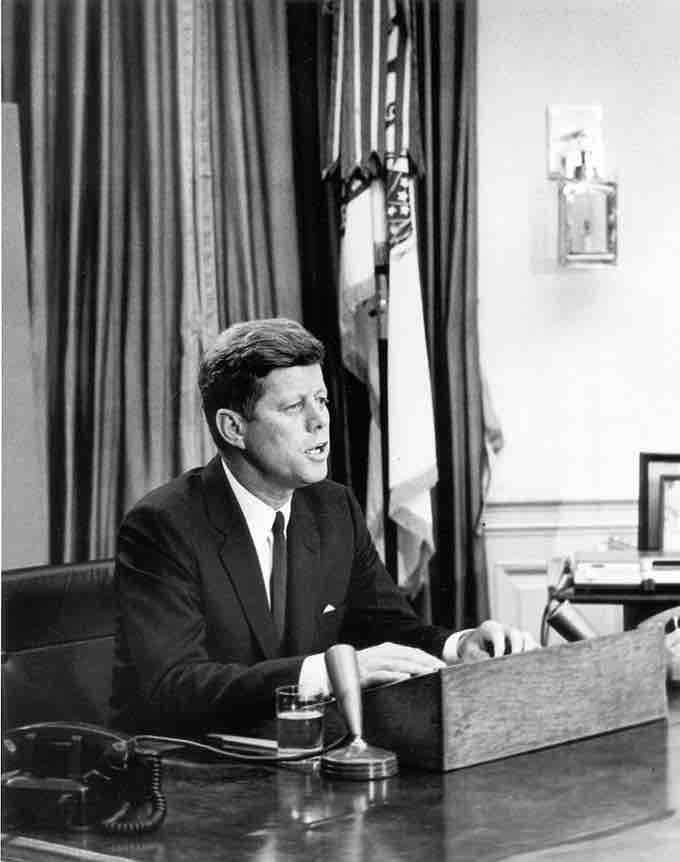The Civil Rights Act of 1964 was a landmark piece of United States legislation outlawing major forms of discrimination against women as well as racial, ethnic, national and religious minorities. It ended unequal application of voter registration requirements and racial discrimination in schools, at the workplace, and by facilities that served the general public.
In a civil rights speech on June 11, 1963, President John F. Kennedy called for passage of the bill, which he said would "give all Americans the right to be served in facilities which are open to the public - hotels, restaurants, theaters, retail stores, and similar establishments," as well as "greater protection for the right to vote. " Emulating the Civil Rights Act of 1875, which established equal treatment in public accommodations, Kennedy's civil rights bill included provisions to ban discrimination in public accommodations. It also enabled the U.S. Attorney General to join in lawsuits against state governments which operated segregated school systems. After Kennedy's assassination in November 1963, President Lyndon Johnson utilized his experience in legislative politics to garner support for the bill, which was passed in July 1964.

President John F. Kennedy
President John F. Kennedy, who called for the passage of a civil rights bill.
The Civil Rights Act was followed by the Voting Rights Act, signed into law by President Johnson in 1965. The Voting Rights Act outlawed discriminatory voting practices that had been responsible for the widespread disenfranchisement of African-Americans. Specifically, the Act outlawed the practice of requiring otherwise qualified voters to pass literary tests to register to vote. This was a principal means by which Southern states had prevented African-Americans from exercising the franchise.
The Voting Rights Act of 1965 is a landmark piece of national legislation in the United States that prohibits discrimination in voting. Echoing the language of the 15th Amendment, the Act prohibits states and local governments from imposing any "voting qualification or prerequisite to voting, or standard, practice, or procedure ... to deny or abridge the right of any citizen of the United States to vote on account of race or color. " Specifically, Congress intended the Act to outlaw the practice of requiring otherwise qualified voters to pass literacy tests in order to register to vote, a principal means by which Southern states had prevented African Americans from exercising the franchise. The Act was signed into law by President Lyndon B. Johnson, who had earlier signed the landmark Civil Rights Act of 1964 into law.
The Act established extensive federal oversight of elections administration, providing that states and local governments with a history of discriminatory voting practices could not implement any change affecting voting without first obtaining the approval of the Department of Justice, a process known as preclearance. The Act allowed "poll watchers" to ensure state compliance with federal legislation. It also eliminated literacy tests as a precondition for voting, effectively removing barriers to African American voter registration. These enforcement provisions applied to states and political subdivisions (mostly in the South) that had used a "device" to limit voting and in which less than 50 percent of the population was registered to vote in 1964. The Act has been renewed and amended by Congress four times, the most recent being a 25-year extension signed into law by President George W. Bush in 2006.